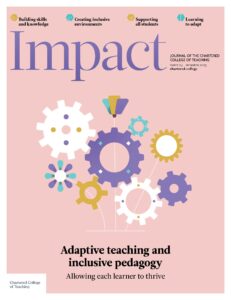AIMEE WILLIAMS, DIRECTOR OF EDUCATION, THREE SPIRES TRUST, UK
As the future of education hangs in the balance, our trust’s principals gathered with a shared sense of responsibility to respond to Becky Francis’s ‘call for evidence’ on 25 September 2024 (DfE, 2024). This was more than just a conversation; it was a call to action! Through vibrant discussions, we drew upon the diverse expertise of leaders across our academies, united by a common vision: to ‘reimagine education’ for the benefit of every student.
A call for change
Reflecting on our discussions, it became evident that this report serves as a passionate synthesis of our collective insights into the limitations of the current curriculum, particularly as it relates to what we believe to be the constrictive English Baccalaureate (EBacc) framework and GCSE model. As a consequence, a more equitable and holistic approach to education is not merely desirable but essential, especially for those often relegated to the s
Join us or sign in now to view the rest of this page
You're viewing this site as a guest, which only allows you to view a limited amount of content.
To view this page and get access to all our resources, join the Chartered College of Teaching (it's free for trainee teachers and half price for ECTs) or log in if you're already a member.











